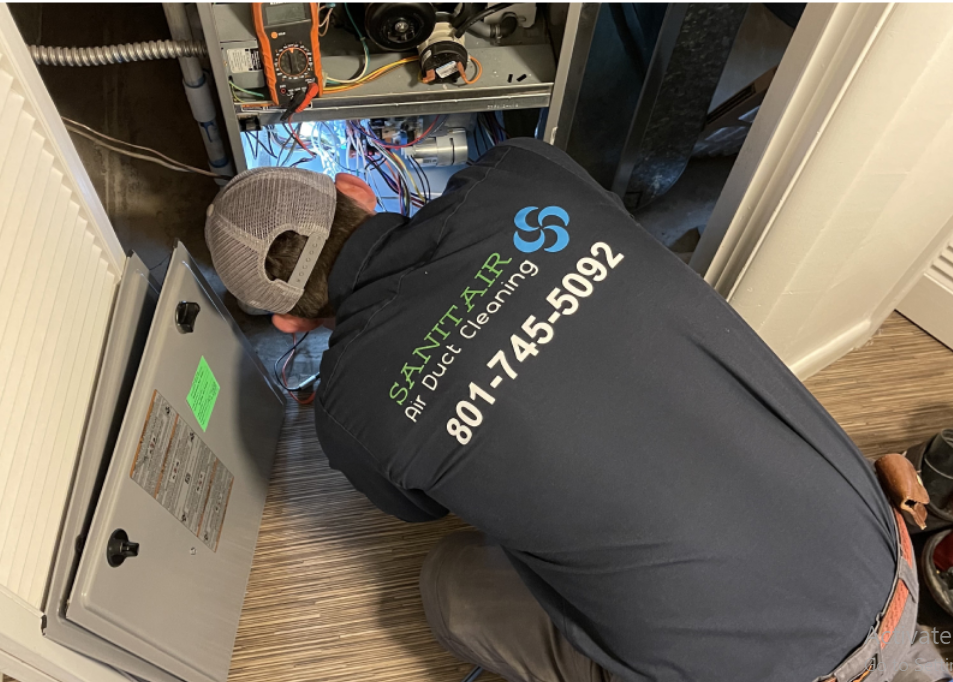7 Common Blower Motor Cleaning Mistakes to Avoid

Blower motor cleaning is essential for maintaining HVAC efficiency, ensuring optimal airflow, and prolonging the life of your system. However, many homeowners and even technicians make mistakes that can lead to costly repairs or reduced performance. Avoiding these common errors can keep your blower motor in excellent condition. Here are seven common blower motor cleaning mistakes you should avoid.
1. Not Turning Off the Power Before Cleaning
One of the biggest mistakes when performing blower motor cleaning is neglecting to turn off the power. HVAC systems run on electricity, and attempting to clean the blower motor while the system is powered can lead to electric shocks or damage to the components.
How to Avoid:
-
Always switch off the main power supply to the HVAC system before opening any panels.
-
Use a voltage tester to confirm there is no residual electricity.
-
Take extra precautions if working around wires or electrical connectors.
2. Using the Wrong Cleaning Products
Another frequent mistake is using harsh or inappropriate cleaning products that can damage the blower motor's delicate components. Certain chemicals can corrode metal parts, degrade rubber seals, or leave residue that attracts more dust and debris.
How to Avoid:
-
Use a vacuum with a soft brush attachment to remove dust and dirt.
-
Opt for a manufacturer-approved motor cleaner or mild soap solution.
-
Avoid water-based cleaners that can cause rust or moisture damage.
3. Ignoring the Air Filters
Many people clean the blower motor but forget to check and replace air filters. Clogged air filters restrict airflow, forcing the motor to work harder and accumulate more dirt quickly.
How to Avoid:
-
Inspect air filters regularly and replace them every 1-3 months.
-
Use high-quality HEPA filters if possible to trap more dust and allergens.
-
Ensure proper installation of the filter to prevent air leakage.
4. Not Cleaning the Surrounding Components
Focusing only on the blower motor while neglecting the surrounding HVAC components is a common oversight. If dust and debris remain in the ducts, fan blades, or coils, they can quickly re-contaminate the motor.
How to Avoid:
-
Clean air ducts and vents along with the blower motor.
-
Wipe down the fan blades and housing to remove any residual dust.
-
Check for mold or mildew buildup that could affect air quality.
5. Overlubricating or Underlubricating the Motor Bearings
Proper lubrication is crucial for the smooth operation of the blower motor, but using too much or too little lubricant can cause problems. Overlubrication can lead to grease buildup, while underlubrication results in excessive friction and wear.
How to Avoid:
-
Check the manufacturer’s recommendations for the right type and amount of lubricant.
-
Apply only the necessary amount to avoid overflow and mess.
-
Clean off excess lubricant to prevent dirt accumulation.
6. Failing to Reassemble Components Properly
After cleaning, some individuals rush through reassembly, leading to misaligned parts, loose screws, or improper connections. This can cause rattling noises, inefficiency, or even system failure.
How to Avoid:
-
Take pictures before disassembling to guide reassembly.
-
Double-check that all screws and components are securely in place.
-
Test the system before closing up to ensure everything functions correctly.
7. Skipping Regular Maintenance and Inspections
Many people clean their blower motor only when they notice performance issues. However, neglecting regular maintenance can lead to long-term damage and costly repairs.
How to Avoid:
-
Schedule regular HVAC maintenance at least once or twice a year.
-
Perform blower motor cleaning every few months to prevent excessive buildup.
-
Hire a professional technician for a thorough inspection if unsure about the process.
Final Thoughts
Proper blower motor cleaning is essential for an efficient and long-lasting HVAC system. By avoiding these seven common mistakes, you can ensure better airflow, lower energy bills, and fewer repairs in the long run. Always follow the manufacturer’s guidelines, use the right tools and products, and consider professional help when needed to keep your system in top shape.
- Art
- Causes
- Crafts
- Dance
- Drinks
- Film
- Fitness
- Food
- Games
- Gardening
- Health
- Home
- Literature
- Music
- Networking
- Other
- Party
- Religion
- Shopping
- Sports
- Theater
- Wellness


